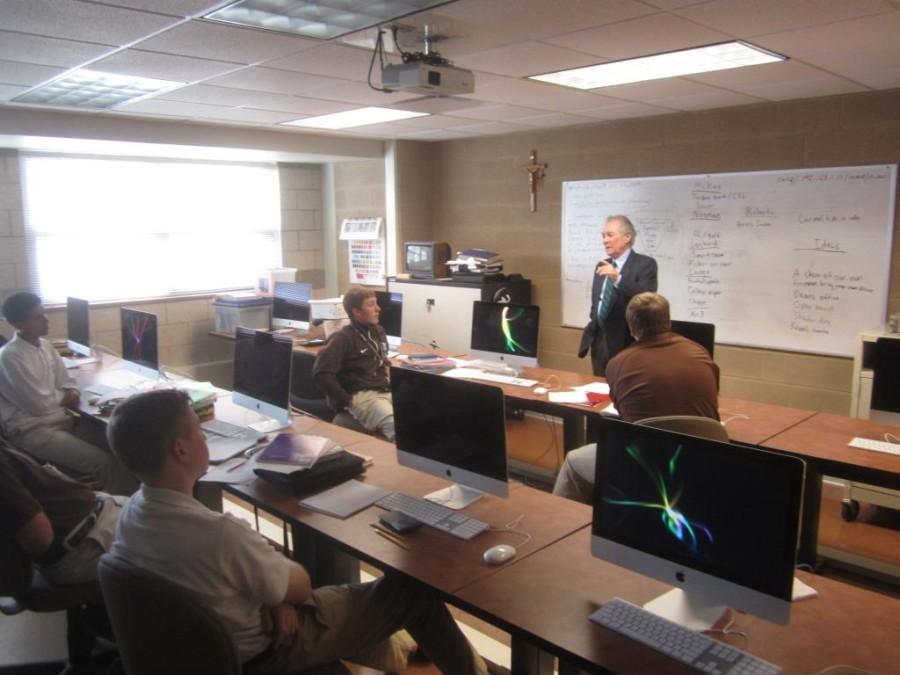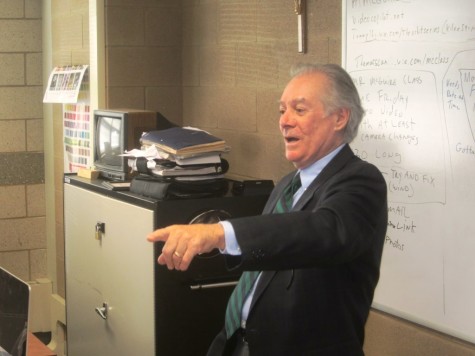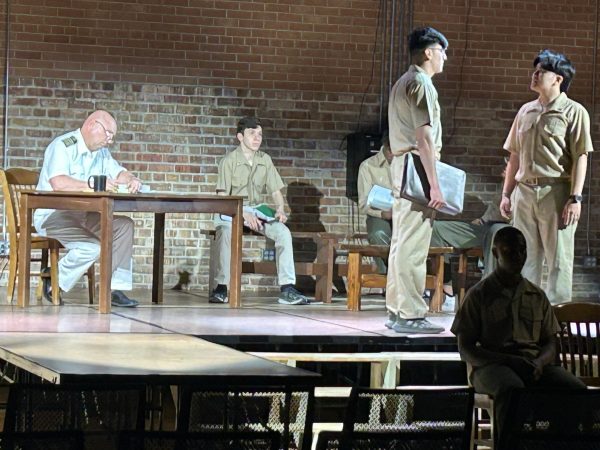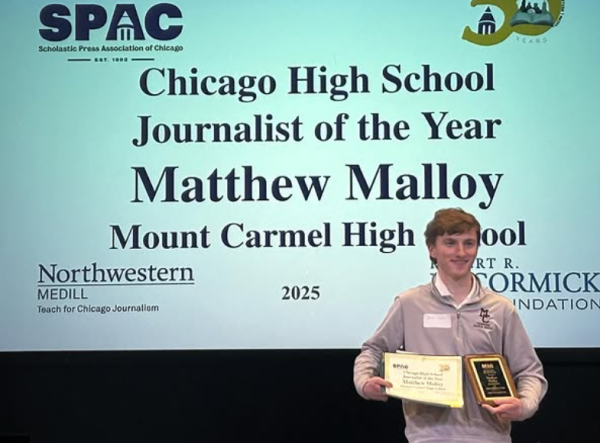Judge inspires Caravan journalists
“I fell in love with the job as soon as I walked into the room; I wanted to do it forever.”
With that emphatic endorsement of their interest in journalism, former Tribune and Sun-Times editor Bernard Judge regaled members of Mount Carmel’s on-line newspaper, mccaravan.org, with stories of the newspaper business gleaned from decades as one of Chicago’s most influential journalists.
During his lecture on Tuesday, October 20, Judge offered a glimpse into a career that included stops at virtually every level of reporting and publishing, and that was filled a love for investigative work and a knack for asking hard hitting questions.
Speaking to a group that included several students considering a journalism major in college, Judge made clear that success in the field requires commitment and hard work. “You always had to be on top of your game,” and “there was never a day off.” While at first that sounds intimidating, he also emphasized that looking back, it was a career like no other, and if he had the chance, he “would do it all over again.”
After graduating from John Carroll University, Judge served in the Army and worked in a steel mill on 89th before landing his “dream job” at the City News Bureau, a wire service that served as the launching pad for numerous reporters and editors. There, he quickly worked his way up the ranks from his starting role as a copy boy, and after “a good year,” landed a reporting position at the Chicago Tribune.
In those early years as a general assignment reporter, Judge’s articles went through a rigorous development and editing process, beginning with the assignment book.
As its name suggests, “the book” identified the stories each reporter was assigned to write, along with background information, suggested interview subjects, etc. After completing his research through phone calls or in-person interviews, a reporter wrote the article. Then, after editing and proofreading his own work, the article would be sent to the slot man (city editor) for a quick approval, and then to a proof reader before finally being submitted to the managing editor. After all this the article might not even be published, as the managing editor could kill an article with a wave of his hand, and according to Judge, those editors were “unforgiving.”
In fact, Judge recalled that the frequent assessment many reporters made about an editor, was that “deep in his cold, cold heart there was a dark place.”
Later, Judge served in a succession of editorial roles with greater and greater responsibilities at both the Tribune and the Sun-Times, routinely clocking in 60 hours a week. Eventually, as managing editor, he had 190 staff and 7 associate editors reporting to him.
In those years, vacations were never really vacations, because he had to call in at least twice a day to review the paper before sending it to print, no matter where he was. When Judge made that call, whether he was at home or on vacation, the article would be in the last stage of the process before printing.
After years at the two major Chicago newspapers, Judge concluded his career as editor of the Chicago Law Review, where he was able to draw from his many years of experience covering court cases as a reporter. Now retired, he enjoys the freedom to spend his days as he chooses, after so many years when his life was dictated by the next news cycle’s deadline.
Junior Conor Langs, a staff writer for mccaravan.org, appreciated learning about the newspaper business from an individual with Judge’s broad background. ” It really gave me an inside look at journalism from someone who has so much experience with it.”







